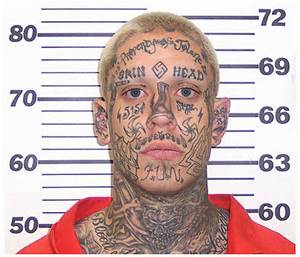Facing economic stagnation, many Americans have been detained in responder camps as a consequence of publically demonstrating in accordance with the Occupy Wall Street movement launched in New York City. Under the guise of protecting Americans from a largely contrived and abstract threat of fundamentalist violence, citizens have been denied the right of peaceful assembly and placed in detainment apparatuses, managed by the Federal Emergency Management Agency (FEMA). Documents have been released by the American Civil Liberties Union detailing the Pentagon’s widespread monitoring of public demonstrations and the targeting of individual activists under threat of national security. Co-authored by Senator Joe Lieberman, the Enemy Expatriation Act (HR 3166) gives the US government the power to detain nationals and revoke their American citizenship under suspicion of behavior perceived as terrorism.
This legislation becomes increasingly more dangerous as citizens can be labeled domestic extremists based on their constitutionally protected activism or personal political leanings. In January 2006, a contract to construct detention facilities for the Department of Homeland Security worth a maximum of $385 million was awarded to KBR, a subsidiary of Haliburton. Following the signing of NDAA earlier in 2012, leaked documents reveal that KBR is now seeking to staff its detention centers and award contracts for services such as catering, temporary fencing and barricades, laundry and medical services, power generation, and refuse collection. It would be reasonable to assume that these facilities could be managed in partnership with private corporations such as the GEO Group or the CCA, as many federal and state penitentiaries privatize sections of their facilities to privately owned companies. Declassified US Army documents originally drafted in 1997 divulge the existence of inmate labor camps inside US military installations. It is all but unexpected that the relationship between the upper echelons of government and the private prison enterprise will grow increasingly more intimate in the current climate of prison industrial legislation.
The partnership between the United States government and its corporate associates spans various industries however, they all seek the common pursuit of profit irrespective of the moral and ethical consequence – the human consequence. The increasing influence of the Prison Industrial Complex towards official legislation and economic undertakings signifies a reprehensible threat to basic human rights. Perhaps the issuance of government legislation that leads offenders into detainment for the benefit of private shareholders is the purest embodiment of fascism, as cited in Mussolini’s vision of a Corporate State. Perhaps we all (this author included) fail to grasp the seriousness of these legislations and their implications on our lives.
Mumia Abu-Jamal has spent over three decades on death row in the throngs of the American prison system. Prior to his conviction in 1981 for the murder of a white police officer, Jamal was a political activist and President of the Philadelphia Association of Black Journalists. Critical evidence vindicating Jamal was withheld from the trial prior to the issuance of the death penalty. Forensic experts believe he was denied a fair trial. On December 7, 2011, the Philadelphia District Attorney announced that prosecutors would no longer seek the death penalty for Jamal. He remains imprisoned for life without parole and continues his work as a journalist from his jail cell in Pennsylvania.

 Mouood Mouood English Edition
Mouood Mouood English Edition



